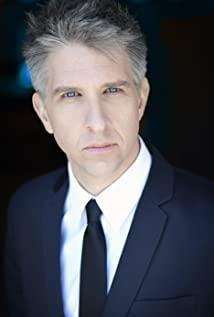"Arrival": The universe is a palindrome
Liao Weitang
Original public account: ikaiping
"Arrival" is a good movie that is awe-inspiring at first glance, but deeply contradictory at second glance. Its contradiction comes from its fundamental rebellion against traditional science fiction movies-although compared to its original "The Story of Your Life" (the famous short story of Nebula Award and Hugo Award winner, Chinese writer Ted Jiang), it There have been many more Hollywood-style tricks. I joked that "Arrival" should be renamed "Revisit" because it violates an iron law of sci-fi creation: time travellers cannot change history and influence the future.
Regarding this iron law, the attitude of "Arrival" is inherently contradictory: super-intelligent creatures who don’t know where they came from (called "heptapod barrels" in the novel) claim that they came to the earth at this moment because "humanity will come three thousand years later." May help them"-Neither the novel nor the movie confirms that they are space travellers from aliens. From the point of their appearance and disappearance out of thin air, they are more in line with the characteristics of time travellers, so you might as well imagine: They may be the humans of the future. If this is the case, their intervention in the history of the earth and imparting their advanced time concepts and knowledge to today's human beings absolutely violates the iron law of time travel.
Take an example of time travel: a person goes back to the past before he was born and killed his father. This is a crazy paradox. In order to avoid this paradox, time travellers must be forbidden to change the past. There is also a paradox that is both time and space: a ball fell into the time tunnel, and went back to the past and bumped into yourself, making it impossible to enter the time tunnel.
Therefore, the act of guiding humans by the "heptapod barrels" in "Arrival" is likely to directly erase their own existence in the future. In this case, there is no behavior that they intervene at this moment. The contradiction of "Arrival" is that the heroine linguist Amy Adams, who has learned the "heptapod"'s ability to predict the future beyond the time limit, intervened in the misjudgment of the Chinese general's war to avoid the tragedy of the earth, but scrupulously abide by the future , Without interfering in his own personal tragedy, knowing that his daughter will die of a rare disease and still give birth to her.
To understand this contradiction, one cannot use reason, but only through poetry. The reason why the whole film is shrouded in a great sadness is precisely because of this. According to Western classical literature theories, the highest state of tragedy is that all audiences know the result but still have to watch it happen according to the inevitable fate. For example, Marquez's "A Homicide in Advance" is such a case. A tragic extreme example. In "Arrival", Amy Adams is the director, actor and the only sober audience of this tragedy. This trinity has created her triple tragedy.
In Eastern classics, tragedy was born in KARMA: Karma. Karma is causation or reincarnation. "Arrival" is made up of countless palindromes of causal structure, whether it is a specific plot or a metaphor. For example, Amy named her daughter Hannah-Hannah, which is almost "painting a doll and drawing the intestines" to explain the tragedy: this word is the shortest palindrome, and it fully explains Amy's daughter and even In the eyes of people who have mastered the "heptapod"-style view of time, the fate of traditional humans is an intuitive fate.
In the face of such a huge contradictory background, braving to change history will lead to future reconstruction and the possibility of their own non-existence, and those "heptapod" people who have traveled to the 21st century on the earth can be said to be Bingyou revolution. A free-willed warrior—of course, Amy, who cooperates with them regardless of contradictions, is also such a warrior. Breaking the karma of cause and effect is Nirvana. The gift given to mankind by the "heptapod barrel" adventure with freedom to travel through time is this kind of transcendence, but its realization requires some sacrificial sacrifices.
Hannah was such a sacrifice. We are talking about the tribute to the blackboard imagery in the classic Kobilik's 2001 Space Odyssey in the spaceship that we are enthusiastic about, but we did not expect that in terms of the overall structural metaphor, "Arrival" is closer to another classic movie: "Sacrifice" by Tarkovsky. In "Sacrifice", a writer who foresaw the end of the world, in order to prevent the end of the world, he used his life and family happiness as a pledge of sacrifice, but the world did not believe it.
Amy's contact with the "heptapod" is also deep in this kind of unbelief-this is a metaphor of the archetype of Western literature, and the prophet is bound to be suspected and even cursed. But the isomorphism of Amy’s transcendence and Tarkovsky’s sacrifice is that they all voluntarily choose a cursed destiny, and compared with secular unbelief, they must have a strong faith, that is, believing in the individual. Sacrifice must be related to overall salvation—there is no promise of God, just as the sacrifice of Jesus was not guaranteed by God.
At this point, I can almost say that "Arrival" and Tarkovsky's three science fiction films "Planet Solaris", "Stalker" and "Sacrifice" are all religious films. In "Arrival", there are a lot of metaphors of crossing the vagina and returning to the mother's womb. The ritual sense of entering and leaving the spaceship is equivalent to rebirth. There is no such setting in the novel. The communication between the two is based on a certain This is done in the form of a smart phone, and the movie takes a lot of time to arrange this cumbersome ceremony of going deep into the mysterious spaceship. In addition to the thrilling effect of commercial movies, a more reasonable explanation is necessary to create a metaphor.
Metaphor, "metaphor" itself is the biggest metaphor of this film closely related to language. If we regard language as a certain belief with a strong mysticism (like a linguistic theory "Sapir" that appears in the film -Wolf Hypothesis": Learning a foreign language will change your way of thinking. This theory that has been questioned in reality is the key to the plot transition in this movie), then all language-related behaviors will directly influence the world Variety. Therefore, the film swiftly established various causal models. For example, the "Last Words of the General's Wife" as the password for customs clearance is deeply symbolic-the life of the entire earth depends on a personal death that has already occurred.
To understand this movie or the original novel, you must start with the metaphor language of poetry, and learn how metaphors and metaphors parasitic images are close to reality. It is inevitable that the words of the "heptapod barrel" are presented in the form of a circle of ink and wash. This state most intuitively illustrates what is meant by "imaginative" language thinking. As for the change of a sentence and the coexistence of tenses in a circle at the same time, The juxtaposition of cause and effect, etc., is actually the state in which modern experimental novels and poetry try to approach each other, and language experiment masters such as Joyce, Beckett, and Stevens all have their temptations. Unfortunately, the interpretation of ink language by Amy and her collaborators in the movie still cannot escape the Western thinking of scientific and technological analysis. This may be a self-irony of the movie. At the last moment, the "heptapod" can't wait, and adopts a direct way to teach the mechanism, just like Zen's heart-to-heart communication. The universe is a palindrome, but it does not create words. This is the argument between the moon and the fingers of Master Huineng (when Amy stretches out her finger to the "seven texts" like the full moon in the movie, this allusion is ready to come out), and it is also the lesson of Master Huineng’s disciple Yongjia, "Every month will show everything "Water, everything is taken by the moon in January", it also contains Amy's epiphany of "moment": the moment is like "seven texts", and one contains everything. If the movies and original works are any tribute to traditional Chinese wisdom, this is it.
View more about Arrival reviews











